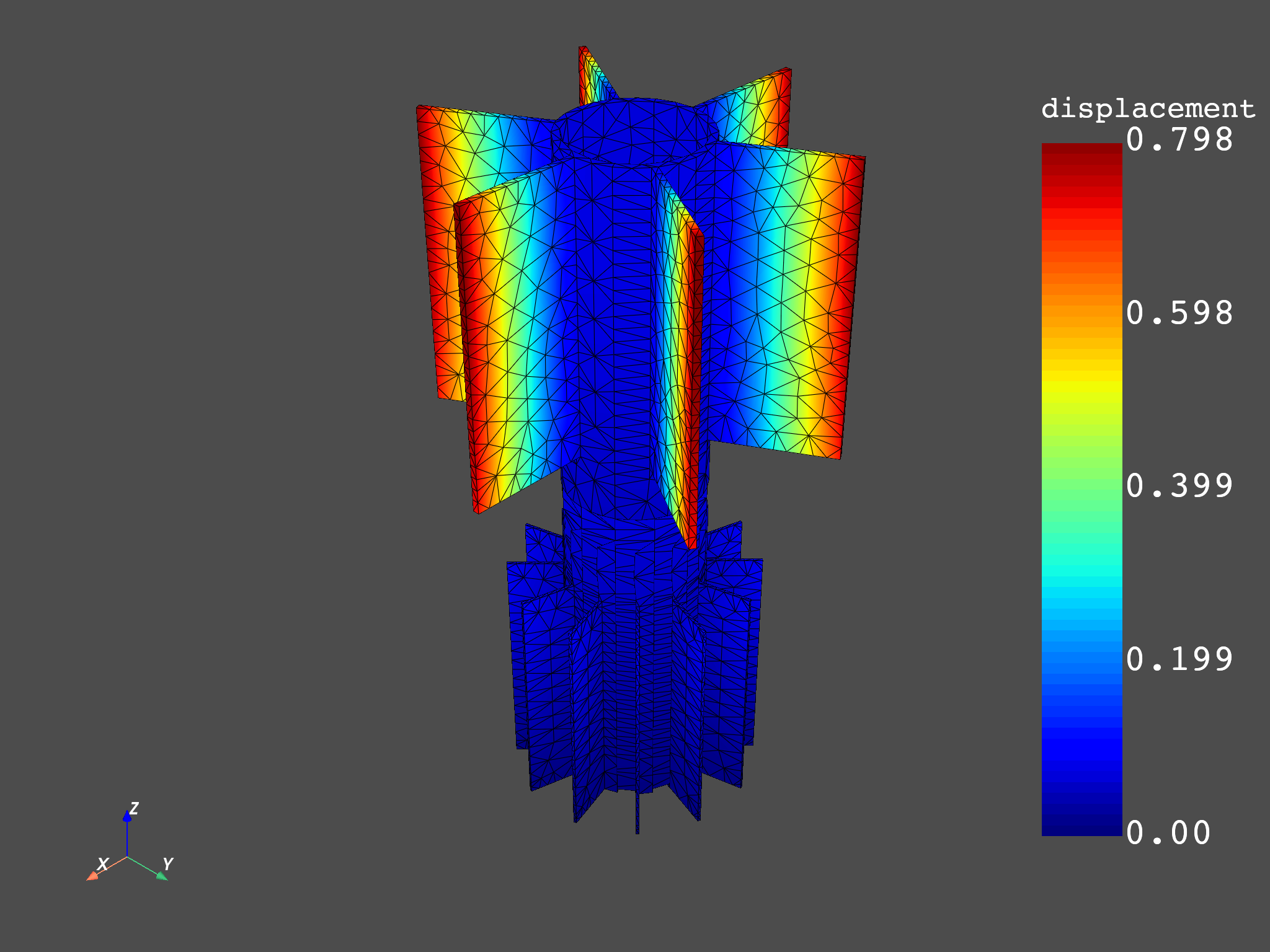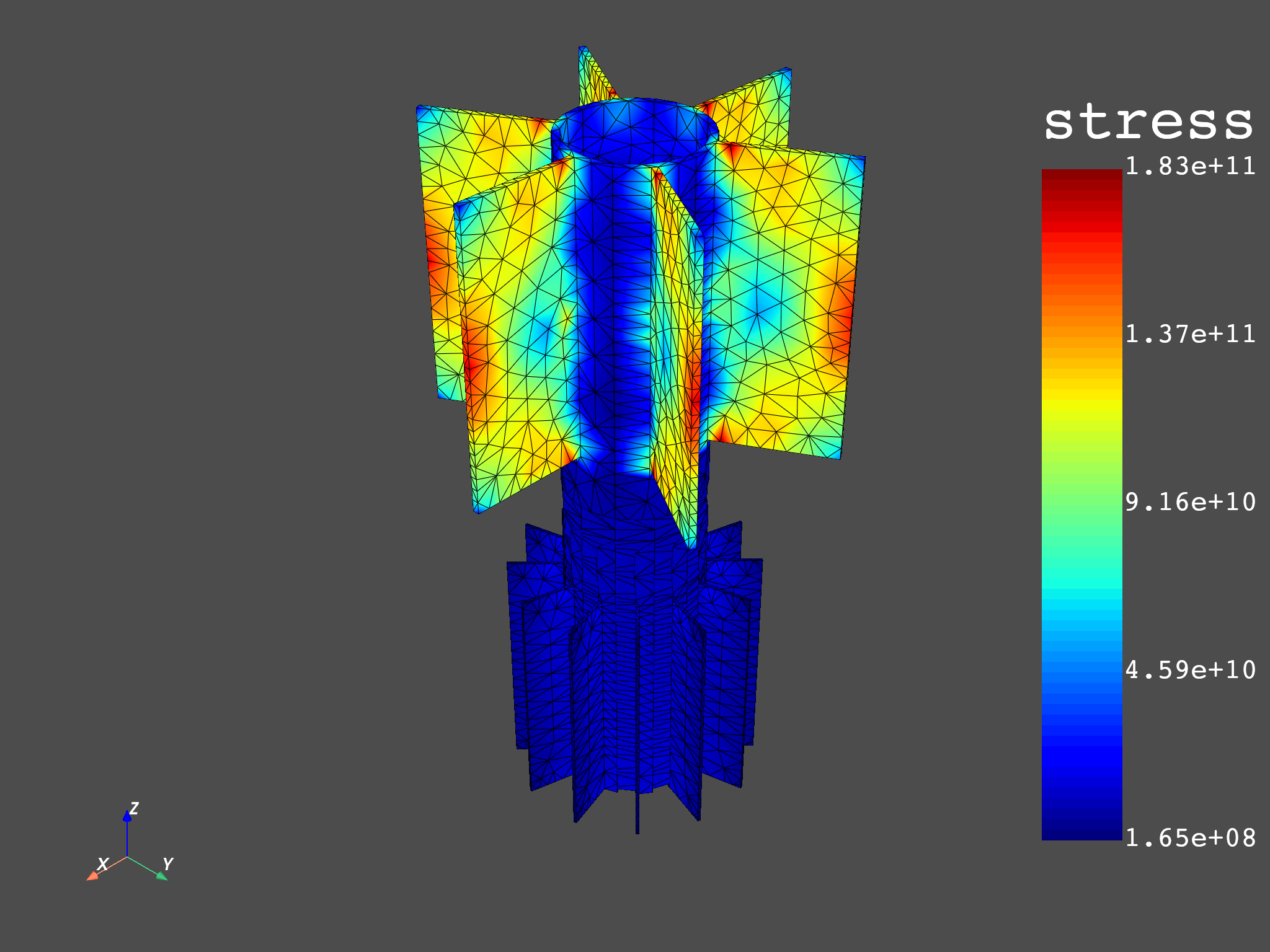Note
Go to the end to download the full example code.
Multi-stage cyclic symmetry example#
This example shows how to expand the mesh and results from a multi-stage cyclic analysis.
from ansys.dpf import core as dpf
from ansys.dpf.core import examples
Create the model and display the state of the result.
cyc = examples.download_multi_stage_cyclic_result()
model = dpf.Model(cyc)
print(model)
DPF Model
------------------------------
Modal analysis
Unit system: MKS: m, kg, N, s, V, A, degC
Physics Type: Mechanical
Available results:
- displacement: Nodal Displacement
- stress: ElementalNodal Stress
- elastic_strain: ElementalNodal Strain
- element_orientations: ElementalNodal Element Euler Angles
- structural_temperature: ElementalNodal Structural temperature
------------------------------
DPF Meshed Region:
3595 nodes
1557 elements
Unit: m
With solid (3D) elements
------------------------------
DPF Time/Freq Support:
Number of sets: 6
Cumulative Frequency (Hz) LoadStep Substep Harmonic index
1 188.385357 1 1 0.000000
2 325.126418 1 2 0.000000
3 595.320548 1 3 0.000000
4 638.189511 1 4 0.000000
5 775.669703 1 5 0.000000
6 928.278013 1 6 0.000000
Expand displacement results#
This example expands displacement results, by default on all
nodes and the first time step. Note that the displacements are expanded using
the read_cyclic
property with 2 as an argument (1 would ignore the cyclic symmetry).
# Create displacement cyclic operator
u_cyc = model.results.displacement()
u_cyc.inputs.read_cyclic(2)
# expand the displacements and get a total deformation
nrm = dpf.operators.math.norm_fc()
nrm.inputs.connect(u_cyc.outputs)
fields = nrm.outputs.fields_container()
# # get the expanded mesh
mesh_provider = model.metadata.mesh_provider
mesh_provider.inputs.read_cyclic(2)
mesh = mesh_provider.outputs.mesh()
# # plot the expanded result on the expanded mesh
mesh.plot(fields)

(None, <pyvista.plotting.plotter.Plotter object at 0x000001DD9D879E90>)
Expand stresses at a given time step#
# define stress expansion operator and request stresses at time set = 3
s_cyc = model.results.stress()
s_cyc.inputs.read_cyclic(2)
s_cyc.inputs.time_scoping.connect([3])
# request the results averaged on the nodes
s_cyc.inputs.requested_location.connect(dpf.locations.nodal)
# request equivalent von mises operator and connect it to stress
# operator
eqv = dpf.operators.invariant.von_mises_eqv_fc(s_cyc)
# expand the results and get stress eqv
fields = eqv.outputs.fields_container()
# plot the expanded result on the expanded mesh
mesh.plot(fields)

(None, <pyvista.plotting.plotter.Plotter object at 0x000001DD9EAC97D0>)
Total running time of the script: (0 minutes 4.446 seconds)

